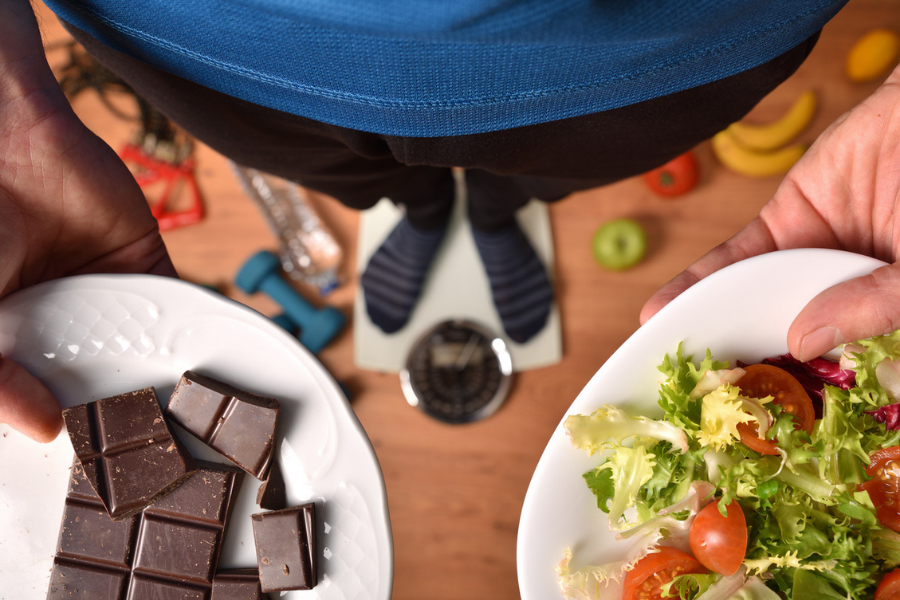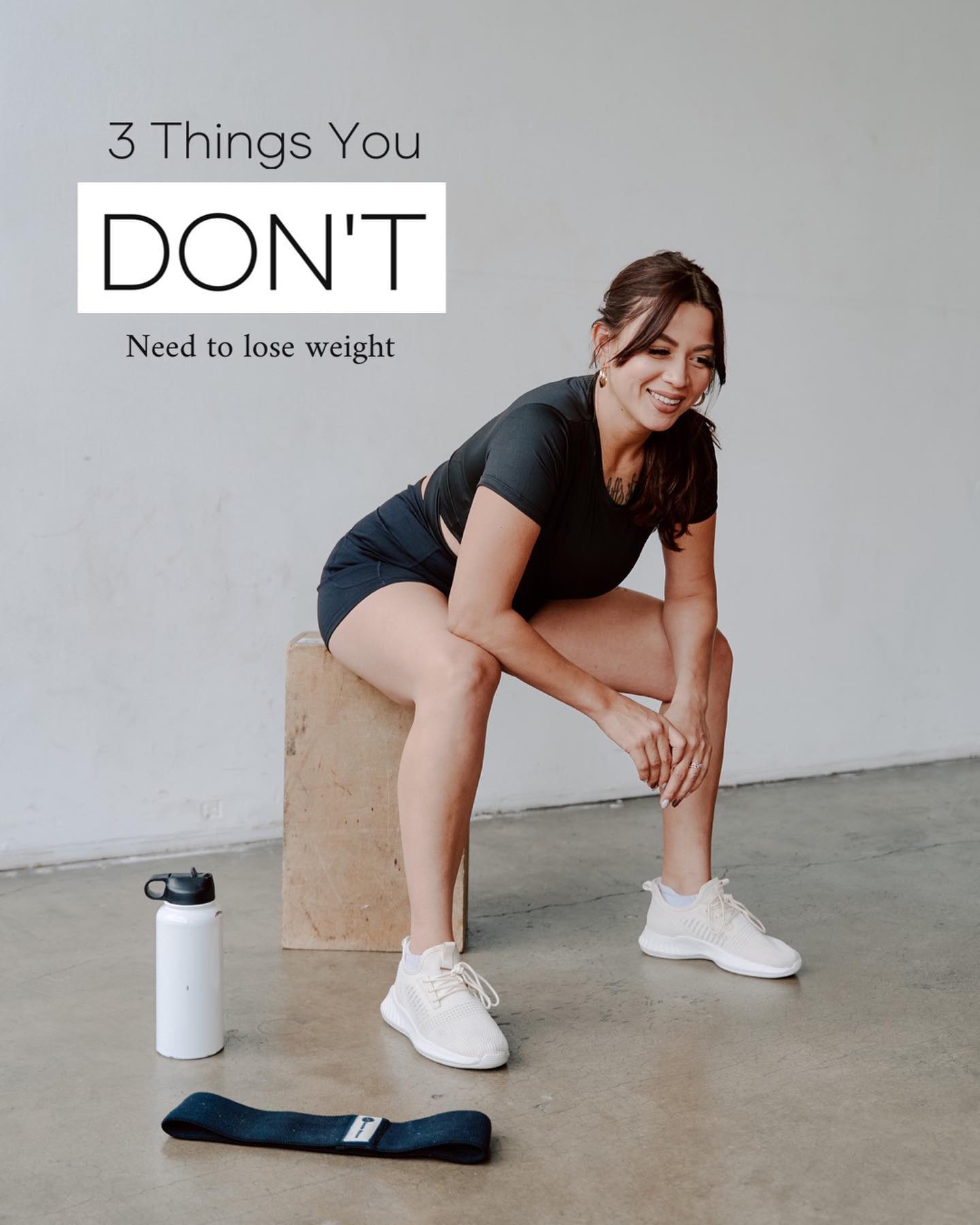Choosing the Right Goal Weight for You
Are you thinking about starting a weight loss plan but feeling a bit unsure about what your target weight should be? You’re not alone! Many people find this decision tricky, especially with so much information out there. But don’t worry—we’re here to guide you through it. This blog will help you understand how to choose a goal weight that’s just right for you. We’ll explore what factors to consider and why it’s okay not to know everything before you start. Remember, this is your personal journey, and it should feel good every step of the way.

Why Your Ideal Weight Might Surprise You
When starting a weight loss plan, many think they need to have a specific number in mind. But here’s a little secret—it’s okay not to know your ideal weight right away. Bodies change over time, and what felt right when you were younger might not be the same now. That’s perfectly normal!
Instead of a fixed number, think about how you want to feel. Is it more energy you’re after? Or perhaps fitting comfortably into your clothes again? Focusing on these feelings can be more rewarding than chasing a magic number on the scale. Plus, as you progress, you’ll have a better understanding of what suits your current lifestyle.
Remember, finding your perfect fit is a bit like shopping for jeans; sometimes, you need to try a few sizes to know what feels comfy and looks great. Keep an open mind, and be patient with yourself!
Understanding Healthy Weight Ranges
Before you set your target weight, it’s helpful to know what’s considered a healthy weight range. This range is different for everyone and depends on factors like your height, age, and body type. Health professionals often use a tool called the Body Mass Index (BMI) to help determine this. However, it’s not the only thing to consider.
While BMI gives a general idea, it doesn’t account for muscle mass or where you carry weight. For example, someone with a lot of muscle might have a higher BMI than what’s considered “healthy,” but they could be perfectly fit. It’s important to look beyond the numbers.
Listening to Your Body’s Cues
Your body has a lot to say, especially when it comes to weight loss. Paying attention to its signals is crucial. For instance, if you’re feeling sluggish or constantly hungry, it might be a sign your current diet and fitness plan need tweaking.
It’s common to set goals based on old photos or past weights, but remember, your body changes over time. How you looked and felt at a certain weight ten years ago might be different now. By focusing on how your body responds to changes, you can make healthier choices that suit you today.
Listening to your body also means celebrating small victories. Did you run an extra mile or resist that second helping of dessert? That’s progress! These moments add up and help guide you toward your ideal weight naturally.
Tailoring Your Plan to Your Lifestyle
Choosing a target weight isn’t just about numbers; it’s about creating a lifestyle you enjoy. A plan that fits into your daily routine is more likely to succeed than one that feels like a chore. Start by thinking about your current habits and how you can gradually incorporate healthier choices.
For instance, if you love evening snacks, instead of cutting them out completely, try swapping crisps for fruit. Little changes can lead to big results over time. Plus, if they fit your lifestyle, you’ll be more likely to stick with them.
Your weight loss plan should feel like an extension of your life, not a restriction. The more it reflects what you enjoy, the easier and more enjoyable your path to your goal weight will be. Remember, every small step counts!
Setting Realistic and Flexible Goals
It’s tempting to aim for a dramatic transformation, but setting realistic goals keeps you motivated and focused. Start with small, achievable milestones. For example, aim to lose 1-2 pounds per week. This approach is healthy and sustainable.
Flexibility is also key. Life is unpredictable, and sometimes you might need to adjust your goals. Whether it’s a holiday or a busy work period, allowing yourself some leeway helps you stay on track in the long run.
Think of your goals as guidelines, not rules. Celebrate each achievement and don’t be too hard on yourself if things don’t go perfectly. The most important part is that you’re moving forward, no matter how small the steps may seem.
The Role of Age in Your Weight Journey
Age plays a significant role in how our bodies respond to weight loss efforts. As we grow older, metabolism can slow down, making it a little harder to shed pounds than in our younger years. This doesn’t mean it’s impossible, just that the approach might need some tweaking. This is especially common in menopausal women!
Strength training becomes more important as we age, helping to maintain muscle mass and boost metabolism. Incorporating exercises that build strength can make a big difference, so consider adding some weights to your routine.
Also, be mindful of what your body needs now versus ten years ago. Nutritional needs change over time, and finding the right balance can support your weight loss efforts and overall well-being. Remember, it’s about feeling your best at every stage of life.
The Importance of Enjoying the Process
Weight loss shouldn’t be a miserable experience. In fact, it’s easier to reach your target weight when you enjoy the process. Finding activities you love, whether it’s dancing, hiking, or swimming, makes staying active fun instead of a chore. How about trying to raise money at the same time doing something like race for life?
The same goes for food. Explore new recipes and flavours. Healthy eating doesn’t have to be bland or boring. With so many options available, creating delicious meals can be fun.
When you find joy in the steps you take, they become habits. And those habits lead to lasting changes that get you closer to your ideal weight. Remember, it’s about progress, not perfection!
Using Technology to Track Progress
In today’s digital world, technology is useful in reaching your weight goals. Apps and gadgets can help track everything from steps to food intake, providing valuable insights and keeping you motivated.
Choose tools that suit your lifestyle. Some people love wearable fitness trackers, while others prefer apps that log meals and workouts. Find what works for you, and use it to stay accountable and celebrate your progress.
But remember, technology is a tool, not a dictator. Listen to your body first and foremost. Use the data to guide you, not control you. Balance is key, even with tech!
Building a Support System
Having a support system can make a huge difference in your weight loss journey. Friends, family, or even online communities can offer encouragement and accountability.
Seek out people who share similar goals or have been through similar experiences. Their insights and tips can be invaluable. Plus, having someone to celebrate wins with makes the process more fun.
You don’t have to go it alone. Building a network helps keep you motivated and on track, especially during challenging times. Together, you can lift each other up and reach those target weights!
Self-Acceptance
Ultimately, the most important part of any weight loss plan is self-acceptance. It’s easy to focus on what you want to change, but appreciating who you are right now is equally important. Accepting yourself doesn’t mean giving up on your goals; it means loving yourself enough to pursue them healthily.
Self-acceptance is about recognising your strengths and acknowledging your efforts. Remember, you are more than a number on a scale. Your worth isn’t measured in pounds or inches. Celebrate the progress you make and honour your body for all it does.
Conclusion
Deciding on a target weight when starting a weight loss plan can feel daunting, but it doesn’t have to be. By taking small, mindful steps and focusing on how you feel, you can find a weight that’s perfect for you. Remember, it’s not about a specific number; it’s about feeling your best. Stay flexible, enjoy the process, and build a support system to keep you motivated. Your ideal weight is waiting for you, and with the right approach, it’s closer than you think. Ready to take the next step? Start your journey today with confidence and a smile!





